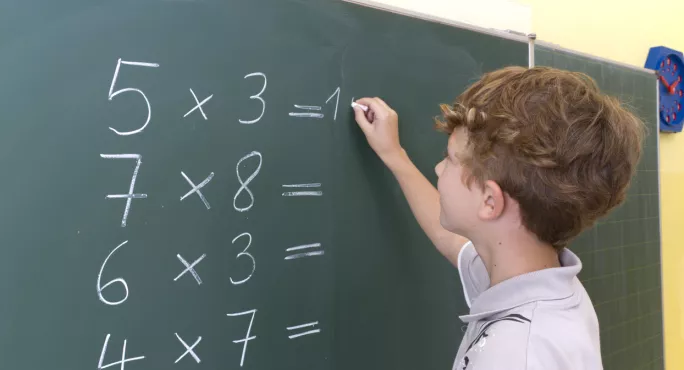Apparently there is an unrecognised crisis among our children. They are not being taught their times tables and so are leaving primary school without this knowledge.
Well, you would think that this is the case, with the government spending upwards of £5 million on the introduction of a compulsory multiplication tables check (MTC) for all Year 4 pupils this year.
But where is the evidence that children’s knowledge of multiplication tables is unacceptably poor? The government hasn’t produced any.
Schools minister Nick Gibb stated that the purpose of the MTC is to help teachers monitor a child’s progress and identify those who need extra support. The aim, apparently, is to enable schools to provide additional help, so that as many children as possible start secondary school with a secure grasp of the multiplication tables.
Do we need times-tables checks?
But schools do this already. Children should, and do, learn their times tables. They are already part of the curriculum.
Every primary school is teaching them, and every child is learning them. Every primary school in the country probably has regular tables tests, and every teacher - and every child’s parents - could tell you which tables each child already knows and which they are working on. Knowledge of the multiplication tables is already tested in Sats papers in Year 6. And, more importantly, Sats assess how children can apply this learning.
So we don’t need a national test to tell teachers what they already know.
This is what our members have consistently told us. In our member survey in 2017, only 16 per cent of respondents supported the proposal to introduce an MTC.
And, in our survey of members who had taken part in the pilot of the MTC in June this year, 94 per cent of respondents said that the test did not tell them anything that they didn’t already know about their Year 4 children’s recall of multiplication tables.
Enormous waste of time
If school staff are not learning anything new about their pupils, what an enormous waste of time and effort this test is for all those involved.
Eighty-five per cent of respondents to our survey reported that administering the MTC increased or significantly increased workload.
And only 5 per cent of respondents believed that this increase in workload was beneficial for children’s learning.
As one member told us: “Children who can bark answers to tables aren’t mathematicians. We integrate tables teaching seamlessly with division and fractions, so children understand what tables are actually for and how knowing the facts can help them. This exercise was a complete waste of time and money”.
School leaders told us that the display on screen was “dull” and the interface was “clunky and old fashioned”. Not a good review for a test which has so far cost in the region of £5 million. There are much more inspiring online programmes already available for schools to use to support children’s learning of times tables.
And will the results of the MTC truly reflect the knowledge that our children have of their times tables?
Unfair process
Members whose children took part in the pilot felt that it was a measure of IT proficiency - with more IT-proficient children more able to quickly grasp the software and accurately input their answers. Children who do not have access to IT hardware at home may be unfairly disadvantaged.
“Fluency in recall is one thing, but fluency in recall alongside fluency in computing skills makes the test an unfair process,” one respondent said.
And there are also legitimate concerns about the accessibility for children with special education needs and disabilities.
Some children struggled to quickly and accurately input their answers within the six-second time limit. In this respect, the test was merely a measure of the speed with which children were able to mentally recall and digitally input their multiplication-table knowledge - not their actual knowledge of multiplication tables.
One member reported: “The timed questions were not a true reflection of some of our pupil’s fluency. Having watched them taking the test, some were a fraction of a second outside of the time limit, but they had the correct answer. Does that mean that they don’t know their times tables, or does it mean that they were slightly too slow to type it in?”
The NAHT headteachers’ union has not supported the introduction of the MTC, from its inception. The pilot hasn’t changed the minds of school leaders.
Sarah Hannafin is senior policy adviser at the NAHT headteachers’ union




